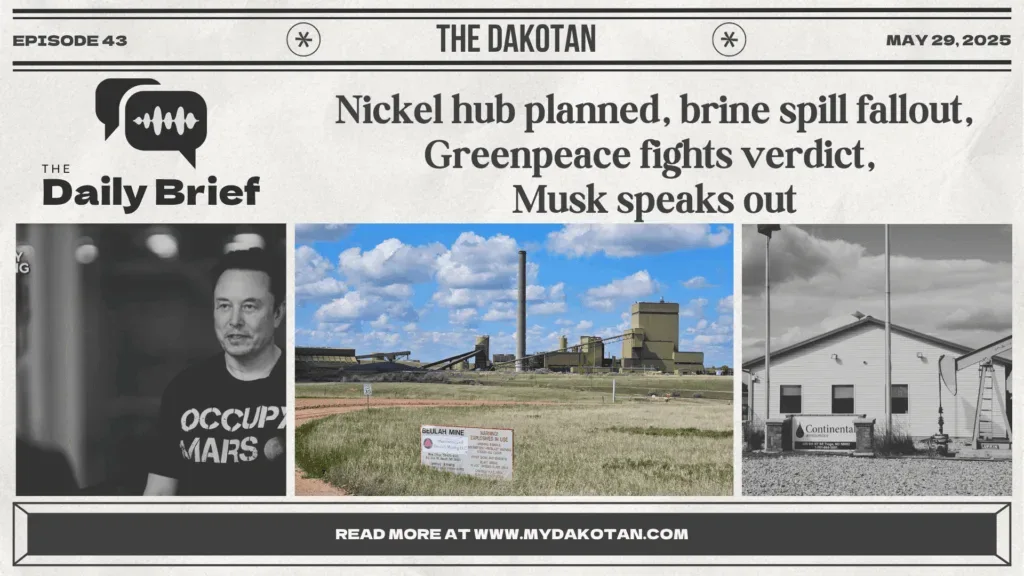

A former coal mine near Beulah, North Dakota, is set to be transformed into a nickel processing facility by Talon Metals, a Minnesota-based company. The Beulah Minerals Processing Facility will process nickel and copper ore from Talon’s Tamarack mine in Minnesota, with operations expected to commence in 2028. The project, supported by a $115 million federal grant and a total investment of $365 million, aims to create 150 jobs and reduce U.S. reliance on foreign sources of critical minerals. Tesla has contracted to purchase about half of the nickel produced, and the Department of Defense is also anticipated to be a customer.
Greenpeace is seeking to overturn a North Dakota jury’s $667 million verdict that held the organization liable for defamation and damages related to the 2016–2017 Dakota Access Pipeline protests. Attorneys argue the decision was driven by a desire to “punish someone” for the protests rather than grounded in factual evidence. The environmental group contends that the punitive damages are excessive and that the defamation claims lack merit, asserting that their statements were either true or protected opinions. Energy Transfer, the pipeline developer, maintains that Greenpeace’s actions caused significant financial harm and urges the court to uphold the jury’s decision.
A significant pipeline failure in Williams County, North Dakota, has resulted in the release of approximately 3.1 million gallons of brine—a byproduct of oil extraction—into the environment. The spill, discovered by Continental Resources staff on May 26, 2025, occurred about 16 miles northeast of Williston and has contaminated nearby grassy land and an unnamed tributary leading to Stony Creek. While the spill did not reach Stony Creek and has not affected drinking water sources, cleanup efforts are underway, including fluid removal, culvert blocking, and berm construction. The pipeline, installed in 2015 and equipped with a monitoring system, has been shut down and drained. The cause of the spill is currently under investigation by the North Dakota Department of Environmental Quality and the Department of Mineral Resources, which are also overseeing remediation efforts
Elon Musk has publicly expressed disappointment with President Donald Trump’s “Big Beautiful Bill,” a comprehensive tax and spending package recently passed by the U.S. House of Representatives. In a CBS News interview, Musk stated that the legislation increases the federal deficit and undermines the objectives of the Department of Government Efficiency (DOGE), which he led. The bill, which extends 2017 tax cuts and increases defense and border security funding, is projected to add approximately $2.3 trillion to the national debt over the next decade. Musk’s critique marks a significant rift between the tech billionaire and the Trump administration, highlighting internal tensions over fiscal policy and government reform initiatives.